We go to the doctor when we are sick. But what happens when doctors get sick? Who cares for them? All too often, physicians are threatened, harassed, even terminated for being ill. After reporting on a psychiatrist fired for having cancer and a pediatrician bullied for her brain tumor, I’ve heard from many more physicians who are now courageously stepping forward to tell the truth. In their own words . . .
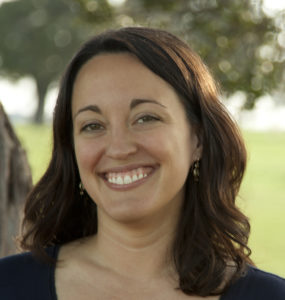
Andrea Seiffertt, D.O.
I got a migraine with aura on NICU [Newborn ICU] call. I literally couldn’t read the orders and had to call over my resident, and tell her I had to lie down in the next 10 minutes before the pain hit or I’d be unable to work later. They left me alone for a few hours, grumbling. After I’d slept a half hour or so, they said, “examine this new one” and pulled me half asleep to a cold, turned-off open warmer with an unwrapped baby inside. He had gastroschisis [birth defect of abdominal wall in which baby’s intestines are outside of the body] , and I didn’t in the first moment realize he had already died, and wasn’t given any history or story, just handed the form. My impression was only of his perfect and sweet smaller-than-term face, his ruined middle, and how he was blue and cold and too stiff, with amniotic banding on one arm and leg. After that first second I realized what had been done to me, and was horrified and tried hard not to cry. That was the only moment of serious hazing I ever experienced.
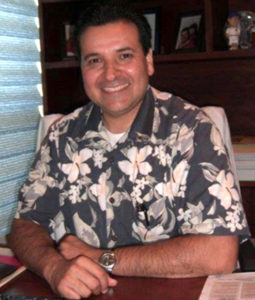
Dario Lizarraga, M.D.
I’m a family medicine doc and during one of my OB/gyn rotations I came down with pneumonia. The OB attending refused to let me leave. I was running a fever of 104 so they just gave me Tylenol and put an IV in my left hand to keep me hydrated between deliveries. I would just double glove to protect myself. As the night wore on I became worse and my own family medicine attending saw me and proceeded to give me Phenergan IV and told the OB attending that I couldn’t work anymore. She called my wife to pick me up and take me home. If not for that one act of kindness I would have had to stay and deliver babies while sick and the go to gynecology clinic the next morning working a 30-hour shift. The next day, I saw my doc who prescribed antibiotics. My OB attending was so furious that I had extra work to do the rest of my rotation.

Anna Hollenbeck
After my emergency C-section, when my son had gone into fetal distress after getting caught, and they ripped apart my abdominals, they had to carry me, bleeding, up and down 4 flights of stairs to attend school because I’d be failed if I didn’t show up. I shouldn’t complain, though. There was another student a few years back with an aortic dissection and half of his internal organs lost blood supply and had to be removed. The school was kind enough to allow him to continue his opiate pain medication while attending classes. Eventually, he ended up dying. All of these events seem almost surreal. Medical education is cruel…
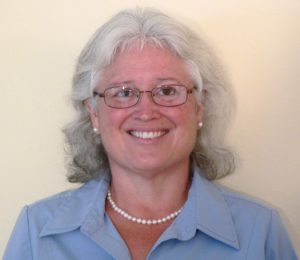
Susan Haney, M.D.
I had a meningitis (proved by spinal tap and hospitalized for 3 days during my second year of residency). Subsequently developed some depression, worsened by the fact that I initially complained about my residency program requiring me to “pay back” the 3 days of work I missed while hospitalized (to work 3 extra shifts on my days off). I complained because I was contractually entitled to sick leave. These were the only 3 days of work I missed over a total of 5 years of residency. In return for complaining, I was told a couple of months later that someone had noticed my attitude had changed (it had) and my knowledge base was deficient (it was not). I was asked to submit to a random urine drug test (which of course I passed). I told my residency director that yes, my attitude had changed—I was depressed about how the program was treating me—and that I agreed I would benefit from some counseling (which I arranged for privately, without further interference from my program). The following month, I tested in the 98th percentile nationwide on my residency in-service exam (higher, in fact, than any other resident in my program). It turns out that my perceived “knowledge gap” was real: I knew more about Emergency Medicine than some of my upperclassmen. When test results returned, their criticism stopped.
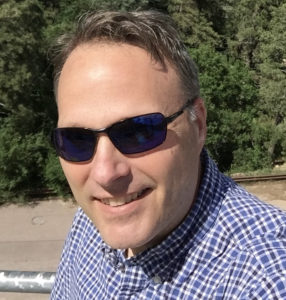
Lane Baker, D.O.
In med school I had viral meningitis during a 4-week rotation at the place I wanted to do my residency. Week two I had a pounding headache, fever, intense neck pain. Tried to work through it with Tylenol. I may have mentioned it to some of the residents, but if I did I downplayed it. The start of the third week I was barely holding it together. I was a first assist on a C-section and had about a 102 fever and dripped sweat into the patients open belly. At this point they were concerned and also pissed. I was sent home until medically cleared. The disease got worse from there, BP 79/30 tachycardia. Well a spinal tap later some fluids and tampering with the bp machine I avoided their recommendation of ICU admission and went home. I took the remaining week and the next off but started the next rotation on time. Had to make up the two weeks at the first place over summer break. I felt the main “lack of support” is the whole environment of “do not seek help.” If you do you will be looked down on as weak and unworthy. My attending told me he worked until his appendix burst and he collapsed. This was given as an example of a “good work ethic.” In residency I had Guillain-Barré. Not horrible I never had to be on a ventilator. I could not use my hands as they were nearly paralyzed. Walking I would have to lean to get momentum and even then it was difficult. Chief resident joked and “called” that he gets to intubate. They were trying to figure out how I could take call if I was any worse. I took no time off during that illness, again viewed as weak if you did. Damn I was just thinking I also had a mental health issue—depression mainly and anxiety. Here is the help I got for that: after morning rounds and lecture I was told to go into a room and make zero stops. I was met in the room by my superiors who said, “You have been acting different and have been reported by a nurse for acting not like yourself. We are going to follow the impaired physician protocol. You are to leave the premises now. Go from here to this address and do a urine drug screen. From there you will submit to a psych evaluation. If you refuse you will be suspended and sent home and possibly terminated.” I didn’t feel much support. By the way, no drugs. My diagnosis: depression and anxiety.
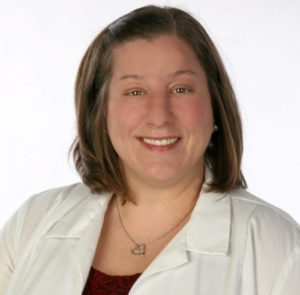
Michelle Catena, M.D.
One of my classmates was dragged by a bus. A second was struck, flipped, left on the road in a hit and run when crossing the street. Our med school had people taking attendance by the number on the back of your chair. The first person had to be in her seat, scraped, bruised, bloodied, in pain. The second had to get special permission to be absent while admitted to the facility hospital. They wanted him in his seat to take tests and then return to the hospital. He was finally allowed to take his tests in the hospital. Even my residency program director did not allow anyone to be absent for illness. It’s a disgrace. A severely ill student missed a few weeks. She was forced to repeat and ended up leaving. My tale of having severe food poisoning the night before a final and not being able to take the final at another time is trivial in comparison. I was pretty much passed out and delirious taking this final. But if you don’t show up, you are automatically failed.
Is this how our doctors should be treated?
Pamela Wible, M.D., reports on human rights violations in medicine. She is a practicing physician in Oregon where she hosts physician retreats to help doctors heal.














I’m a trauma surgeon who suffered a bipolar episode during research years…I was told to pursue pathology instead and given four obstacles to overcome if I wanted to go back to surgical residency 1) an unrestricted Texas lisence 2) a clearance from my psychiatrist 3) retention in the military which was my source of funding and 4) convince the program director ( who had already told everyone on the board my diagnosis and asked whether I should be retained) that I could be a surgeon ( this required seeing an independent forensic psychiatrist). I persevered and overcame theses obstacles only to face three more years of hell as two camps warred over whether I should be a surgeon…ultimately I did graduate but not because of any support from my program.
OMG. That is terrible. Thanks for the courage and perseverance and for putting words to your story for the rest of us to see. You are not alone. I hope you are FINALLY enjoying your career!!
Why are their not workplace regulations for doctors and health professionals like most other industries have? 30 hour shifts? 12 and 19 days back to back? Is there a shortage of qualified doctors? I really hope one day soon you or someone you have inspired creates a sane and loving medical school so students will at least have a choice.
We have an 80-hur work week restriction. But that’s not enforced. The entire medical education system is dysfunctional. Take a look at this: https://www.idealmedicalcare.org/blog/im-a-doctor-im-on-medicaid-i-work-as-a-waitress/ (not enough residency training spots for one). I could go on . . .
The residency duty hour regulations state a resident have – on average – one day off in 7. If you start work on a Monday, for example, that Sunday prior counts as the day off. If you work through that next weekend and the following week until Friday you have worked 12 days. If you have that weekend off, then start working the following week on Monday through that next weekend, the following week and weekend, and the following week until Friday you have worked 19 days. You then have that Sat (weekend) off. On average, you have worked 31 days with 4 days off.
Before you post and write stories like this, you should probably do some fact checking. Yes we often put patients before our own health, but some of this not factually correct. There are significant lies in the stories.
John Doe Anonymous ~ Why don’t you share who you are for transparency. At least these people are courageously sharing their true names and the situations that they experienced in training. Are you suggesting one of these people has lied about their history? Who would that be? And why don’t you fill us in . . .
Pamela is aware there are some edits needed and more detail regarding my experience, as my story was truncated.
Significant lies in the “stories”. So you have personal knowledge in more than one of these docs lives? Usually there are at least two sides to a story these our their stories. The feelings they had during those times can not be in dispute, because they are their feelings.
Im sorry but exposing patients to communicable diseases like pneumonia and meningitis is not a noble sacrifice. Sleep deprivation causes cognitive impairments similar to drinking alcohol and symptoms of psychosis. None of this constitutes putting the patients’ health ahead of physicians’. Patients need and want doctors who have had a full night’s rest, a good breakfast and who is not currently ill with an infection. But it seems a physician with 20 years or more of education has the same terrible work environment as a retail or fast food employee with a GED. At least Arby’s doesn’t have a supply of dead babies to haze migraneurs with.
Agree 100%! Not only are these working conditions in violation of human rights—with often longterm emotional and physical sequelae (and a destruction of one’s personal life), this is a public health crisis. Patients and every thoughtful person on the planet should be outraged.
After reading these horrific tales of system abuse at the hands of health care providers,I have to wonder how do doctors provide quality healthcare under these “Dark Ages” conditions. How many patients have died due to having utterly exhausted medics attending them? How can the medical fraternity be so horrendously cruel to their colleagues, or are doctors considered to be above the human race and unable to have a health crisis or any other crisis. So what happens in cases of family emergencies? You have to just work….and work…and work! Utterly disgusting!!!
Good questions Coleen. I’ll preface by assuring you that some medical institutions do not subscribe to such human rights violations and mistreatment of their med students and residents. Far too many continue to abuse the very people who we depend on to care for us. I know of many people who were not able to attend their own close family member’s funeral at risk of failing out for missing class. Here’s one quote from this article (Why So Many Doctors Lack Self-confidence, and How to Get It Back) in Medscape:
Claire reports: “I imagine all med schools are difficult, but mine is sadistic (a direct quote from our school counselor). My school is notorious for failing students—10%-20% of every class every semester. It doesn’t matter if your brother just died; if you’re .01% away from passing any class, you’re dismissed. No makeup tests. Before med school, I was a 3.98 student. Today I’m a C+. Talk about deflating. I’ve gone to every department to figure out how to bring my grades up, but the response is, ‘You’re not smart enough.’ I know that’s not true, but it hurts that my school doesn’t think I belong here (but they’re happy to take my money). All this crap has culminated in a deep depression. I’ve developed test anxiety that paralyzes me during exams. The only help I’ve received is antidepressants. I constantly doubt myself. I even struggle to interact with my husband and son. I feel like an idiot for coming here—and even worse for dragging my family into this $200,000 mess without knowing if I’ll ever pay it off. I worry that I’ll never be able to practice medicine. It’s enough to drive anyone mad. Worst of all, I’ve become cocky just to deal with all the assholes that I’m surrounded by, but my confidence is down the toilet.”
This is no way to treat these bright, idealistic humanitarians who just want to help people.
As a resident I had to miss the burial of my grandfather (raised me as a child) to come back and be on call. As an attending I had to leave my son 14 yo in the hospital after he suffered a major seizure as a result of a brain tumor. I could spend a day with him and then had to be back to take call. I still am not over that one.
I got chills reading this. Beyond words.
I am so sorry you must live with those types of choices. They do eat away at us over time.
How can they be so cruel? I think part of it is some sort of cruel idea of, “I had to go through this, so should they!” It’s absurd.
There is really nothing mysterious about this. Hazing and bullies, no different from schoolyard or a fraternity in college. If you do not actively fight it on every level, it will bloom like weeds…sad but true.
Exactly. Being nice & conforming/submitting not the answer.
Time for physicians to make friends with attorneys!
As a mitochondrial myopathy patient, very fragile and with a documented immune deficiency, the “mito” community warns that it is very dangerous for a mito patient to catch an infection, and that we should avoid being around sick people. I can’t begin to count the number of times I have gotten very sick because of contagion from one of my doctors! This is horrible not only for the doctor, but also for the fragile patients that the doc may be putting in danger of contagion. A new policy would be appreciated!
When I think of what the training is like, what young doctor’s go through in residency their treatment is totally inappropriate. I have never been in the medical field, but I had a mom who was a wonderful geriatrics nurse. Also with bad health problems I have known a lot of doctor’s. Residency is too important to both the doctors and patients for the doctors to not be able to properly get their health better and resting when needed. People doing their residency are there to learn and practice the care they will be doing when they are done with residency. I appreciate you all.
Thanks Kathleen. Really appreciate your support. We are all in this together. Nurses, NPs, PAs, EMTs, docs, and patients. We all have a lot to lose with this type of training environment. We can do better. A little kindness and compassion would go a long way in medicine.
Thank you, Kathleen. I agree it is at times inappropriate, and as Hcerda points out, we fear retaliation. Despite programs’ best intentions in busy environments of academic hospitals these things fall through the cracks especially with many residents in a program. We are held to a different standard. My program initially gave me time off, a couple days, and curtailed my hours from working every 4th day for 28 hours but my injuries were more serious than realized. They asked for a note from my doctor stating how many hours I could work, if at all. When I told my chief resident I was not feeling well she ignored my request to speak with her. I know it is a learning lesson for all but it did not feel I had a voice and felt as if what I was experiencing did not matter. It was indeed traumatic. Observations related to a temporary condition were not used to intervene in my best interest. I was in jeopardy for taking time off which was approved for necessary appointments. I was even advised by an attending I should have scheduled emergent dental work for another rotation. We deserve protection as trainees, and so do our patients.
I’m not surprised to hear these stories as I’m married to an intern. Luckily he’s never experienced something as traumatic as these examples but what can be done to change the culture? It doesn’t seem that change can start with the ones in training since they can be retaliated against. So what can be done?
Interns and residents need legal protection the way any other worker would be protected (OSHA, ADA). These laws exist and yet victims who will not stand up to abuse and human rights violations ultimately perpetuate the abuse onto themselves and the next generation. Abuse does not magically resolve itself. Great solution as explained by a physician friend:
Any concerned citizen (you do NOT have to be an employee there) can contact the local OSHA office and alert OSHA about a potentially unsafe workplace. If there is a work-RELATED fatality, that triggers an automatic OSHA investigation. If you are an employee there, are whistle blower laws that protect your position. OSHA also covers interns, volunteers, and students in the workplace as well. When there is a physician suicide in the news, call the local OSHA office as a concerned citizen about potentially unsafe working conditions that have lead to this. You can reference Pamela’s website and book as proof the suicide is work related for physicians. Employers must (by law) report work related fatalities to OSHA. Here is a link to the OSHA standard on workplace violence (which includes bullying) : https://www.osha.gov/Publicati… After just a couple OSHA investigations, watch the industry change. Problem solved.
It’s not just med schools, after you graduate the fear of missing a day continues. I watch my colleagues in fear of missing a day and the lack of compassion. We are exposed to sick people constantly, of course our odds of getting sick are higher! Then, when we need time to recover we are looked down upon. I have been more sick in the 6 years since I entered medicine than my entire 28 years prior. In clinicals I suffered a severe ear infection with a perforated eardrum. Do you know how painful it is to put a stethoscope in a ruptured ear? Not to mention the vertigo and fatigue. After graduating I got the flu – I told myself it was not the flu but after 4 days of running a 104 temp of ibuprofen and tylenol I gave in. My Medical Director and mentor berated me for not having a doctors note – I argued I self diagnosed and missed the window of tx so I did’nt need to drag myself to the doctor and expose others for what I knew was viral. After 6 months of a new medical director, bullying and a particularly hard year for me with family health problems I developed shingles on my face – moving toward my eye, and herpetic encephalopathy. After that I was bullied out of my job. I have been working locums ever since, afraid of managers and medical directors. This career was not what I thought it would be. I’m not sure I want to stay in.
This is a cycle of abuse. Nora, here’s what you do. 1) Leave your abuser. 2) Open your own clinic. It’s easier than you think. If you have any questions I’m here . . . STOP the abuse cycle. Please.
Unfortunately I am a PA so I cannot open my own clinic. I may be leaving the country to help train hospitals how to utilize PA’s in other countries. The worst part is I dedicated my career to working with the poorest of the poor, under and un-insured patients. I always put my patients first, even if it takes more than 15 minutes. That doesn’t fly in the new Toyota/Kaizan model of treating patients like factory parts. It all makes me sick.
I care too much, promised myself I would never burn out or keep quiet when I saw abuse taking place. I was a voice for all of us. What I got in return? Threatened with my license and forced to make a deal to quietly leave and stop making noise vs. be reported to the board for refusing to work inhumane conditions. I’m scared to even write this post because I believe my old bosses are still after me if I make a peep.
Institutional bullying is rampant. I am so sorry that you had to be subjected to these threats, Nora. We must stand up for each other and not allow abuse in our clinic and hospitals. Intimidation and divide-and-conquer tactics are the only things that allow these toxic working conditions to persist.
Looks like it happens everywhere. In Chile , I worked relentlessly in ICU and became sick with an order of an MD that I was not capable to perform. So I was “fired” after bad looks and worse labor environment.
Wow, I’m shocked at these stories. My husband and I did not have this experience during training. I had hyperemesis during pregnancy and was given accommodations during residency. My husband found out he needed a kidney transplant our 3rd year of medical school. He had to frequently miss his IM rotation due to doctors appointments. His attending almost failed him because of it- he was too afraid to tell her for fear of retaliation. But when she found out she felt TERRIBLE. He was given 6 weeks off medical school our 4th year to have the surgery, and our class even gave us the money used for our senior gift to help us with medical expenses. I guess we were blessed to have such a wonderful, supportive environment.
Not surprised by this at all. Worked 43 years as hospital RN, including critical care patients. Hospital admin is NOT supportive to sick personnel. I was written up for missing two days in a row – a Fri followed by Mon, even though the second day I was down in the ER with my name on OR schedule as GB add-on. Done c a scope, returned to PACU a week later for fear of losing my job.
Unfortunately this type of treatment does not end with medical school or residency. I recently had an extremely busy call shift ending with a difficult case. I had not slept in 24 hours and so I called my RN to let her know I would not be coming to clinic that morning. I needed to sleep and was emotionally drained. The administration of our clinic called my nurse into their office and reprimanded her for rescheduling patients and threatened her with insubordination. I was reprimanded for “limiting access to patient care”. New policies were created by the administrative team which were directed at myself and our team and shared with all of the staff making it even more difficult to take time off when needed and placed fear in our staff about losing their jobs. I wish I could say life gets better after your training is completed, but often times I am not so sure.
When I returned from maternity leave I was asked to sign a paper stating that I would not turn my notes in more than three days late. I had to have an emergency C-section when I went into labor 3 weeks early and my notes weren’t done for that week. I’d even asked if I could use their computer during my hospitalization to finish my notes but wasn’t able to. The notes were done the morning after I returned home (four days later). Signed the paper and put on three months supervision.
Yet another unacceptable case of lack of compassion toward our doctors-in-training.
I did not realize how truly “lucky” I was – when I was a 4th year medical student in late 1991 or early 1992 at the Medical College of Virginia, I developed pneumonia during my Infectious Disease rotation. This in turn aggravated my asthma and sent me back to the doctor with an acute asthma attack. I missed 10 days of a 4 week rotation. They were great. I was allowed to do a presentation on common infections in asthmatics and was graded on that and the 2 1/2 weeks I was present. I was treated with care, concern and respect, as we should all be treated and how we should treat others.
Yes there’s problems, but there’s a lot of details missing here. Miscommunication + misunderstanding seems to be a theme.
A guy lost “half of his internal organs” after a dissection and still went to work? Which ones?
Missing is some compassion for the plight of those who fall of the usual trajectory of meded (whether from mental/physical health issues or a family death). Obviously each person is just providing a short summary. Full details limited due to space.
Daily, I am amazed at just how cruel the medical field can be. I am a nurse and EMT. In nursing school, we were told that if we missed even one clinical day we would be removed from the program and the school’s clinical leader said, “the only excuse for missing a clinical day is death.” I am not making that up. Here we are, a group of students learning to take care of the sick and understand what it is like for the patients, yet zero understanding is given to us as professionals/students. I have started IVs on 4 sick residents and given them antibiotics at work because they were not allowed to miss a day. I also recognize just how much more intense medical school training is and I hope some day residents/students will be treated more like human beings.
I have worked as a paramedic and nurse in other countries, sadly it is just as bad or worse outside the US.
Thanks to Dr. Wible for making this site…we really do need to come together and strive for a change.
Heartbreaking the lack of compassion displayed toward our healers. Criminal actually. Should be illegal. Human rights violations rampant in our health care institutions. Unreal.
All our Doctors need much more support. My heart goes out to all of them. More support is needed for a Doctors well being, mentally and physically speaking.
Thanks Donna. How can we give the care we’ve not received?